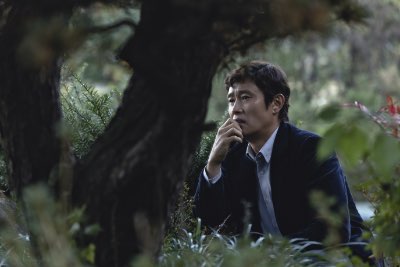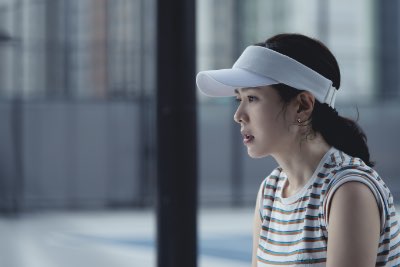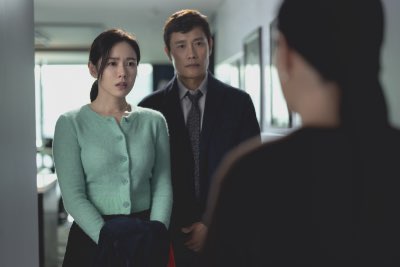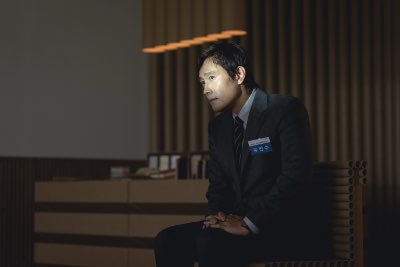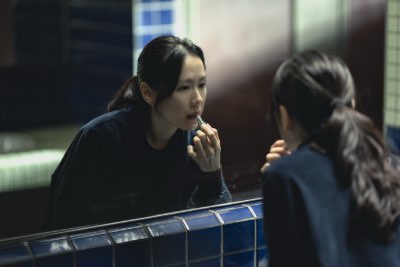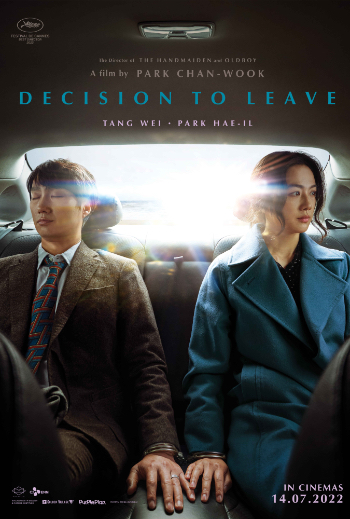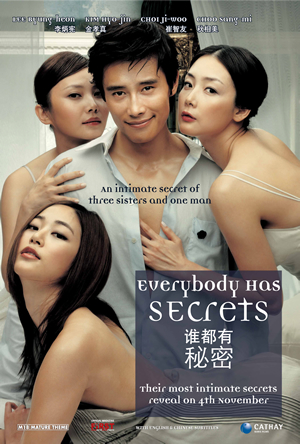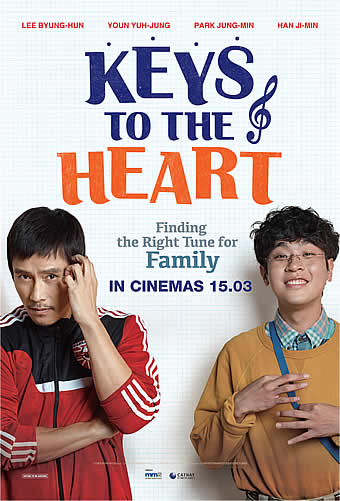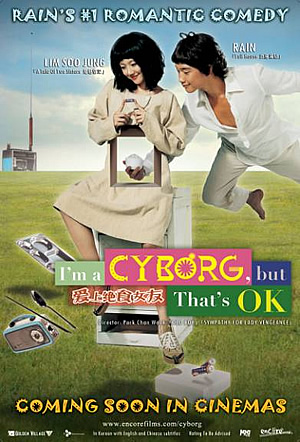NO OTHER CHOICE (м–ҙм©”мҲҳк°Җм—ҶлӢӨ) (2025)
Genre: Comedy/Thriller
Director: Park Chan-wook
Cast: Lee Byung Hun, Son Yejin, Park Hee Soon, Lee Sung Min, Yeom Hye Ran, Cha Seung Won
Runtime: 2 hr 19 mins
Rating: NC16 (Violence and Sexual Scene)
Released By: Purple Plan and Golden Village
Official Website:
Opening Day: 23 October 2025
Synopsis: Man-su (Lee Byung Hun), a specialist in paper manufacturing with 25 years of experience, is so satisfied with life that he can truthfully tell himself, “I’ve got it all.” While happily passing his days with his wife Miri (Son Yejin), their two children and two dogs, Man-su is suddenly informed by his company that he has been fired. “We’re sorry. We have no other choice.” Feeling shocked as if his head had been cut off by an ax, Man-su vows to find himself a new job within the next three months for the sake of his family. Despite his firm resolve to turn his life around, Man-su spends over a year drifting from one job interview after another, and working at a retail store. He eventually finds himself in danger of losing the very house that he struggled so hard to buy. Desperate, he visits Moon Paper out of the blue and tries to hand over his CV, but he just ends up getting humiliated by line manager Sun-chul (Park Hee Soon). Man-su knows he is better qualified than anyone to work at Moon Paper, so he comes to a certain decision. ‘If there is no opening for me, I’ll just have to get hired by creating an opening.’
Movie Review:
With No Other Choice, Park Chan-wook once again proves that few directors can blend moral unease, visual precision, and dark humour quite like he does. From the stylised vengeance of Oldboy (2003) to the sensual intricacies of The Handmaiden (2016), Park’s films have always been cinematic feats—gorgeously composed yet deeply unsettling. His latest feature continues that tradition, though in a quieter, more human register. It’s less about revenge or obsession and more about the quiet desperation of losing one’s place in a world that no longer has use for you.
At the centre of the story is Man-su (Lee Byung-hun), a seasoned specialist in paper manufacturing whose well-ordered life begins to crumble after an unexpected retrenchment. The premise is simple, almost mundane, but Park uses it to explore something far larger—the erosion of self-worth in an age of ruthless efficiency. Faced with mounting rejection and financial strain, Man-su begins to make choices that are morally unacceptable. You may not agree with what he does, but you’ll understand why he does it.
Park’s filmmaking remains razor-sharp. Every shot is composed with painterly care, and it’s hard not to admire every frame. The cinematography isn’t grand, but it’s strangely beautiful, evoking a world where even failure looks immaculate. The sound design is just as precise. Park has always been a master of atmosphere, and here he channels it into something quietly unsettling.
Lee Byung-hun ditches his big boss image and gives one of his best performances in years. Stripped of glamour, he embodies an ordinary man’s quiet breakdown with precision and empathy. His Man-su is prideful, bewildered, sometimes absurd—but never unsympathetic. Even as he takes questionable turns, it’s impossible not to feel for him. Lee makes failure deeply human, even relatable. And we can’t help but chuckle when he shows up with his moustache. Also, watch out for a scene where he shows off an awkward but surprisingly charming dance move.
Son Yejin, reuniting with Park after her early work in Sympathy for Mr. Vengeance, brings warmth and moral gravity as Man-su’s wife, Miri. Her understated performance reminds viewers of what’s at stake—the quiet pain of watching someone you love lose themselves. Together, their scenes anchor the film’s emotional core.
What distinguishes this highly recommended film from other social dramas is Park’s wickedly funny and sharply scripted approach. The dialogue brims with irony—biting but never cruel, sad but never sentimental. And then there’s the ending: lingering, ambiguous, and achingly human. You might think Man-su has achieved what he set out to do—to give his family the life he wants for them—but while things appear fine on the surface, a quiet dread seeps through. It leaves you with the uncomfortable realisation that Man-su’s struggle isn’t just his, but ours too.
In the end, Park’s latest work stands as another sharp, thought-provoking entry in his filmography. It’s visually immaculate, sonically inventive, and emotionally resonant in its restraint. For those who appreciate films that look exquisite while making you quietly squirm, this one’s hard to shake.
Movie Rating:





(Park Chan-wook's latest film features a beautifully crafted, darkly funny story of pride and survival, anchored by Lee Byung-hun’s performance, which is funny, sad, and unexpectedly relatable)
Review by John Li
You might also like:
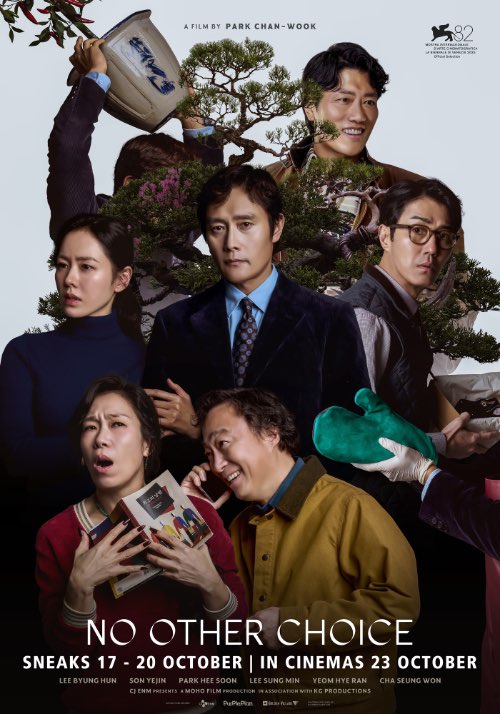
Movie Stills

